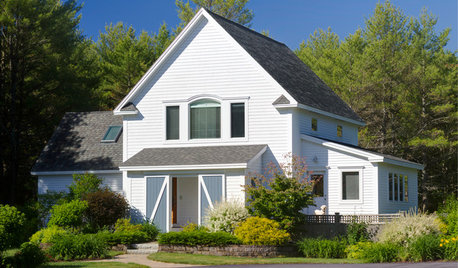Is Anybody Following The Markets?
triciae
15 years ago
Related Stories

MIDCENTURY STYLEFollow One Man’s Midcentury-Mailbox Dream
An ill-fitting mailbox leads a determined dad on a quest — and possibly to a new business
Full Story
ACCESSORIESHow to Really Score at the Flea Market
To snag the best deals from arrival to departure, follow these tried and true guidelines from an insider
Full Story
EVENTS5 Big Trends From This Week’s High Point Market
Learn the colors, textures and shapes that are creating a buzz in interior design at the market right now
Full Story
ACCESSORIESHigh Point Market Branches Out Into Natural Decor
Branches, driftwood, shells and sustainable materials were big trends in decor items at the 2012 High Point Market. Take a peek here
Full Story
ARCHITECTUREDesign Practice: The Basics of Marketing Your Business
Pro to pro: Attract clients and get paying work by drawing attention to your brand in the right places
Full Story
MOVINGTips for Winning a Bidding War in a Hot Home Market
Cash isn’t always king in a bidding war. Get the home you want without blowing your budget, using these Realtor-tested strategies
Full Story
PRODUCT PICKSGuest Picks: 19 Standouts From High Point Market
Let these metallic and nature-loving pieces inspire a spring decorating makeover and a bright outlook
Full Story
DECORATING GUIDESTop Design Trends From the Winter 2015 Las Vegas Market
Interior designer Shannon Ggem is tracking finishes, motifs and design combinations at the 2015 show
Full StorySponsored
Professional Remodelers in Franklin County Specializing Kitchen & Bath








punamytsike
maggie2094
Related Discussions
Ava Missouri Farmer's Market, can anybody help me?
Q
Does anybody know anybody....
Q
anybody have World Market furniture?
Q
Anybody feeling queasy about the stock market?
Q
triciaeOriginal Author
Gina_W
partst
maggie2094
Terri_PacNW
beanthere_dunthat
bunnyman
Gina_W
caliloo
maggie2094
dedtired
sheesh
punamytsike
bunnyman
lpinkmountain
loagiehoagie
caliloo
caliloo
bunnyman
loagiehoagie
caliloo
bunnyman
punamytsike
triciaeOriginal Author
triciaeOriginal Author
caliloo
triciaeOriginal Author
bunnyman
bunnyman
triciaeOriginal Author
triciaeOriginal Author
triciaeOriginal Author